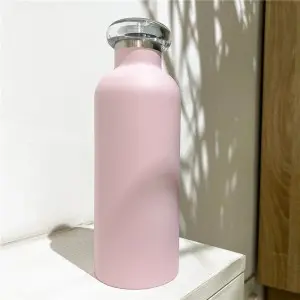Water bottles have become an integral part of our modern lifestyle. From fitness enthusiasts and athletes to office workers and students, these portable containers provide convenience and hydration on the go. However, as we strive to minimize our environmental impact, questions arise: should water bottles be crushed before recycling?
Body:
1. Dispelling the myths:
There is a common misconception that shredding water bottles before recycling saves space and makes the recycling process more efficient. While this may seem plausible, this thinking couldn’t be further from the truth. In fact, compressing plastic bottles can create obstacles for recycling facilities.
2. Classification and identification:
The first step in a recycling facility involves sorting the different types of materials. Water bottles are usually made of PET (polyethylene terephthalate) plastic, which must be separated from other plastics. When bottles are crushed, both their unique shape and recyclability suffer, making it difficult for sorting machinery to accurately identify them.
3. Security issues:
Another important aspect to consider is the safety of recycling facility workers. When water bottles are compacted, they can develop sharp edges or protruding plastic fragments, increasing the risk of injury during shipping and handling.
4. Aerospace considerations:
Contrary to popular belief, water bottles retain their shape and occupy the same amount of space whether they are crushed or intact. The plastic used in these bottles (PET in particular) is very light and compact in design. Shipping and storing crushed bottles can even create air bubbles, wasting valuable cargo space.
5. Contamination and decomposition:
Crushing water bottles can cause contamination problems. When empty bottles are compacted, the remaining liquid can mix with the recyclable plastic, affecting the quality of the final recycled product. Additionally, shredding creates more surface area, making it easier for dirt, debris or other non-recyclable materials to adhere to the plastic, further compromising the recycling process. Also, when the water bottle is crushed, it takes longer to break down due to the reduced exposure to air and sunlight.
6. Local recycling guidelines:
It is important to know and follow local recycling guidelines. While some cities accept crushed water bottles, others explicitly prohibit it. By becoming familiar with the specific rules in our area, we can ensure our recycling efforts are both effective and compliant.
In the ongoing quest for sustainable living, it is crucial to distinguish fact from fiction when it comes to recycling practices. Contrary to popular belief, shredding water bottles before recycling may not yield the intended benefits. From hindering the sorting process at recycling facilities to increasing the risk of injury and contamination, the disadvantages of shredding outweigh any obvious advantages. By following local recycling guidelines and ensuring empty bottles are properly rinsed, we can contribute to a cleaner environment without crushing water bottles. Remember, every little effort counts to protect our planet.
Post time: Aug-07-2023
